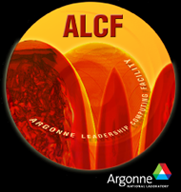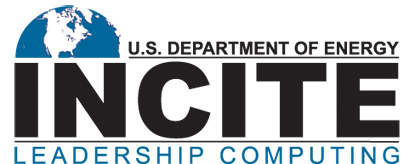ASCR Leadership Computing Challenge (ALCC) Allocation Program
The ASCR Leadership Computing Challenge (ALCC) is an allocation program for projects of interest to the Department of Energy (DOE), with an emphasis on high-risk, high-payoff scientific campaigns enabled via high-performance computing (HPC) in areas directly related to the DOE mission, that respond to national emergencies, or that broaden the community of researchers capable of using leadership computing resources.
The ALCC program is managed by the Advanced Scientific Computing Research (ASCR) program office in the DOE’s Office of Science. ASCR stewards several high-performance computing user facilities including the National Energy Research Scientific Computing Center (NERSC) located at Lawerence Berkeley National Laboratory and the Leadership Computing Facilities located at Argonne National Laboratory (ALCF) and Oak Ridge National Laboratory (OLCF).
Each year, between 10%-30% of the available resources at these user facilities are available to research supported through the ALCC allocation program. The allocation year runs from July 1 – June 30th of the subsequent year, with a possibility of renewal for up to 2 years.








